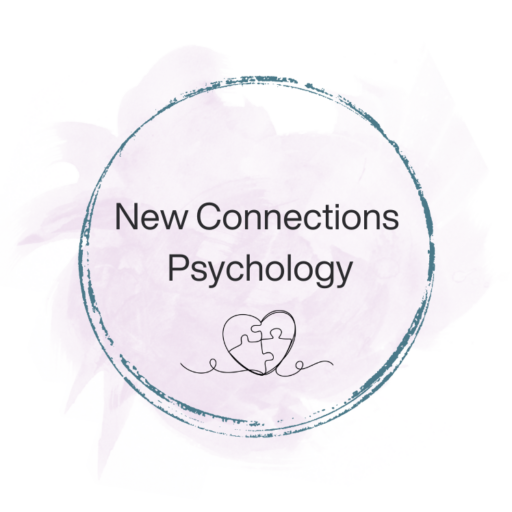Introduction
The origins of Thanksgiving trace back to the early settlers, who expressed their gratitude for survival and a bountiful harvest. As we enter November, it’s a fitting time to explore the profound mental health benefits of gratitude and discover ways to foster this mindset.
The term “gratitude” finds its roots in the Latin word “gratia,” signifying grace, graciousness, or gratefulness, depending on the context. In many respects, gratitude encompasses all these meanings. It represents a heartfelt appreciation for everything one receives, whether tangible or intangible. Through gratitude, individuals acknowledge the goodness present in their lives and recognize that its source lies partially beyond themselves. Consequently, gratitude becomes a gateway to connecting with something greater than oneself, whether it be other people, nature, or a higher power.
Scientific research in positive psychology consistently demonstrates the strong correlation between gratitude and increased happiness. Gratitude empowers individuals to experience more positive emotions, savour delightful moments, enhance their well-being, navigate adversity, and cultivate meaningful relationships.
Gratitude manifests in various forms, with its effects extending to the past, present, and future. It encompasses cherishing positive memories and being thankful for the blessings of childhood or yesteryears. It also involves acknowledging and valuing current good fortune without taking it for granted. Moreover, gratitude encompasses maintaining a hopeful and optimistic outlook towards the future. Regardless of an individual’s existing level of gratitude, it is an attribute that can be nurtured and expanded successfully.
Research Insights on Gratitude
Drs. Robert A. Emmons from the University of California, Davis, and Michael E. McCullough from the University of Miami have conducted substantial research on gratitude. In one study, participants were assigned weekly writing exercises focusing on specific topics.
One group wrote about things they were grateful for during the week, while another group vented about daily irritations or displeasures. The third group simply wrote about events that had affected them without any emphasis on positivity or negativity. After ten weeks, those who expressed gratitude demonstrated increased optimism and a greater sense of satisfaction with their lives. Surprisingly, they also displayed higher levels of physical activity and fewer visits to healthcare professionals compared to those who focused on sources of aggravation.
Dr. Martin E. P. Seligman, a renowned psychologist at the University of Pennsylvania, conducted a study examining the impact of positive psychology interventions on 411 individuals. Each participant was compared with a control group assigned to write about early memories. The assignment that led to the most significant boost in happiness scores was writing and personally delivering a letter of gratitude to someone who had never been adequately thanked for their kindness. This positive effect surpassed that of any other intervention and endured for a month.
It’s important to note that studies like these cannot establish definitive cause and effect. Nevertheless, most published research in this field supports the association between gratitude and an individual’s overall well-being.
Further studies have explored how gratitude can improve relationships. For instance, a study involving couples revealed that individuals who took time to express gratitude towards their partners not only experienced more positive emotions but also felt more at ease discussing concerns within the relationship.
In a workplace setting, managers who remember to express gratitude by saying “thank you” to their employees may witness increased motivation and effort. Researchers at the Wharton School, University of Pennsylvania, divided university fund-raisers into two groups. The first group followed their usual practice of making phone calls to solicit donations from alumni. The second group, on a different day, received a heartfelt pep talk from the director of annual giving, expressing gratitude for their contributions. Over the following week, the fund-raisers who received the message of gratitude made 50% more calls, compared to those who did not.
While the research on gratitude generally yields positive results, there are a few exceptions worth mentioning. One study found that middle-aged divorced women who maintained gratitude journals did not report higher life satisfaction than those who did not. Another study discovered that children and adolescents who wrote and delivered thank-you letters to individuals who had made a difference in their lives may have brought happiness to the recipients, but it did not directly improve their own well-being. This finding suggests that gratitude is an attribute linked to emotional maturity.
Cultivating Gratitude: Practical Tips
Gratitude provides individuals with a means to appreciate what they already possess, rather than constantly yearning for something new in the pursuit of happiness or believing that contentment depends on fulfilling every material need. By refocusing on their blessings rather than their deficiencies, individuals can nurture gratitude, and with practice, this mindset becomes more profound and impactful.
Here are a few practical ways to cultivate gratitude regularly:
- Compose a thank-you note: Enhance your happiness and strengthen your relationship with others by writing a thank-you letter expressing your appreciation for the positive impact they have had on your life. If possible, deliver and read it in person. Aim to send at least one gratitude letter each month, and occasionally, write one for yourself.
- Mentally express gratitude: If time constraints prevent you from writing, simply thinking about someone who has done something kind for you and mentally thanking them can have a positive effect.
- Maintain a gratitude journal: Make it a habit to jot down or share with a loved one the things you feel grateful for each day.
- Reflect on your blessings: Dedicate a specific time each week to sit down and contemplate your blessings. Reflect on what went well or what you appreciate. Setting a target, such as identifying three to five things each week, can help. As you write, be specific and recall the sensations you experienced when something positive occurred.
- Embrace prayer: Individuals who are religious can integrate prayer to foster gratitude.
- Practice meditation: Engage in mindfulness meditation, which involves being fully present in the moment without judgment. While many people focus on a specific word or phrase, such as “peace,” you can also direct your focus towards things you are grateful for, like the warmth of the sun or a soothing sound.
Gratitude is a transformative force that enables individuals to find solace and fulfillment in what they have rather than incessantly seeking external validation. Although it may seem contrived initially, the practice of gratitude grows stronger with repetition and dedication. Embrace the power of gratitude and unlock its profound impact on your well-being.
Getting Help
Online therapy, also known as teletherapy or telehealth, has emerged as a convenient and effective solution for accessing mental health support remotely. With the advancements in technology and the increasing demand for accessible mental healthcare, online therapy provides individuals with a flexible and confidential way to receive therapy from the comfort of their own homes. Through secure video conferencing platforms, individuals can connect with licensed therapists and engage in therapy sessions that address a wide range of mental health concerns. Online therapy eliminates geographical barriers, making it particularly beneficial for those in rural areas or individuals with limited mobility. It also offers a level of convenience, allowing people to schedule therapy sessions that fit their busy lives. By providing a safe and confidential space for individuals to explore their emotions, online therapy has proven to be a valuable resource in promoting mental well-being and delivering effective therapeutic interventions.
Conclusion
In conclusion, gratitude is a transformative mindset that has the power to enhance happiness, improve relationships, and cultivate overall well-being. Scientific research consistently highlights the positive impact of gratitude on individuals’ mental health, emphasizing its role in fostering positive emotions, resilience, and stronger connections with others. By embracing gratitude and integrating it into our daily lives, whether through writing thank-you notes, keeping a gratitude journal, or expressing appreciation mentally, we can experience profound shifts in our perspective and find greater contentment in the present moment. Furthermore, the availability of online therapy has revolutionized mental healthcare, making it accessible, flexible, and convenient for individuals seeking professional support. Through secure video conferencing platforms, people can connect with therapists regardless of geographical barriers, ensuring that mental health services reach those in need. As we navigate life’s challenges, let us celebrate the power of gratitude and embrace the opportunities that online therapy presents in promoting our well-being and personal growth.

